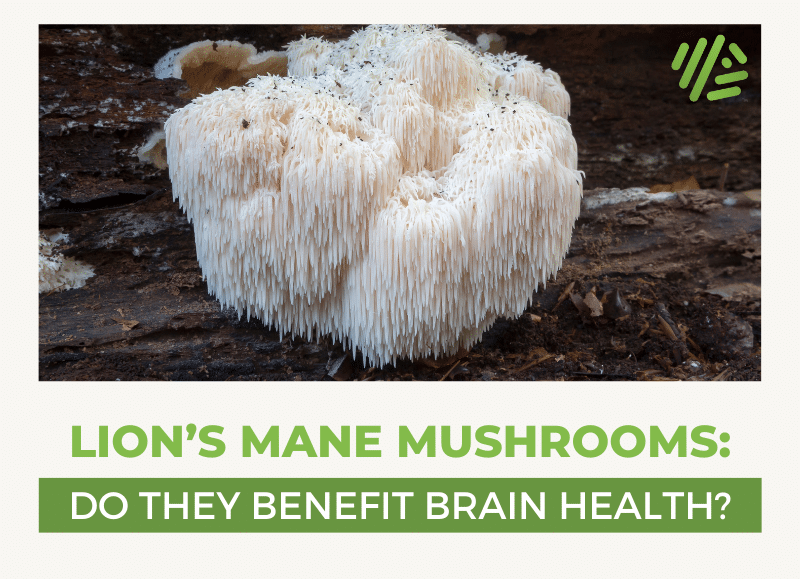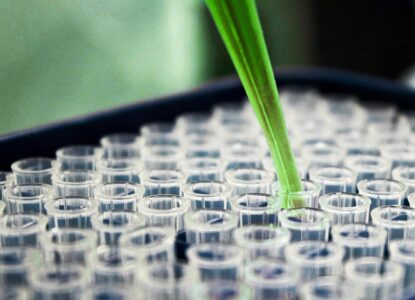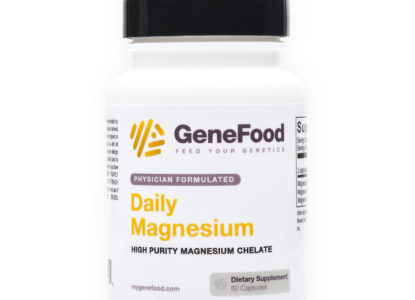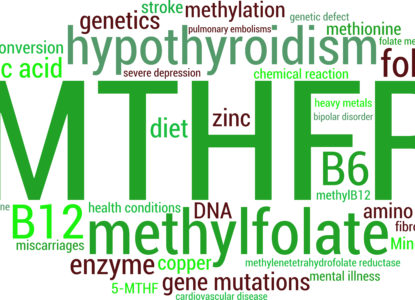Lion’s Mane Mushrooms: Do They Benefit Brain Health?

Contents
The Lions Mane mushroom, also known as Hericium erinaceus, has been used for thousands of years in Traditional Chinese Medicine, but has only recently gained popularity in health and wellness circles in the west.
This blog post details my experience supplementing with this ancient mushroom. As you will soon learn, I noticed tangible lion’s mane benefits as well as some side effects.
Lion’s mane as a memory and mood booster
Lion’s mane is often described as a “nootropic,” a family of pharmaceuticals and supplements that boost cognitive ability. Enhanced focus was one of the reasons I decided to experiment with Lion’s Mane supplements.
Sure enough, small doses via tuncture gave me a subtle, but noticeable boost in mood, and strangely helped me remember phone numbers, although the efficacy was brand dependent. I found the Montana Farmacy tincture to be very effective and the more expensive (by about double) Host Defense product much less so.
I could feel a difference in tangible boost in cognitive performance soon after talking Lion’s Mane. I was looking up phone numbers on my iPhone (which has the data turned off to preserve my sanity) and needed to walk over to my cell (a very crappy flip phone) to make a call.
I always try to remember the number without looking at it on my phone, basically as a test of how far my attention span has fallen in the digital age, and often will forget the last couple digits of a number I’m trying to remember. Not the case with Lion’s Mane. I felt like the numbers were sticky in my brain and could remember them hours after I took a small dose. This may sound odd to some of our readers, but it was actually a very cool to experience. Lion’s Mane helped me clear some mental clutter and gave me a cognitive boost that also resulted in a noticeable improvement in mood.
Although they have been small in scale, studies have corroborated this experience, with this randomized controlled trial in the Journal Nutrients showing Lion’s Mane had a positive impact on speed of performance and subjective stress in a group of young adults.
Lion’s mane, Nerve Growth Factor and brain health
There have been a number of studies done on Lion’s Mane, although the science is far from conclusive.
One mechanism of interest: Lion’s Mane has been shown to increase Nerve Growth Factor (NGF), which is responsible for the maintenance and growth of neurons in the brain.
NGF is part of a larger family of biomolecules called neurotrophic factors, which support the growth and survival of neurons. Essentially, many neurological diseases, such as Parkinson’s and Huntington’s disease, are linked to the degradation of neurons over time, and it is thought that neurotrophic factors, such as NGF, may play a future role in preventing these conditions. 1
Interestingly, a study by the International Journal of Medical Mushrooms (IJMM) found that Lion’s mane was effective at increasing NGF but that it was not protective against oxidative stress in the brain. 2 As a result, IJMM concludes that Lion’s mane has neurotrophic properties, but cannot be classified as neuroprotective because it failed to protect brain cells from oxidative damage.
Neurotrophic factor vs. neuroprotective
In case this sounds like a confusing distinction, I have this working definition: neurotrophic factors help to maintain the survival of neurons, presumably from a number of different mechanisms that can cause degradation.
By contrast, substances that are neuroprotective are effective at protecting against oxidative stress specifically. Therefore, a substance that is neuroprotective could also be a neurotrophic factor, but as is the case with Lion’s mane, it doesn’t necessarily follow that neurotrophic factors will also be neuroprotective.
To quote the study:
The combination of 10 ng/mL NGF with 1 μg/mL mushroom extract yielded the highest percentage increase of 60.6% neurite outgrowth. The extract contained neuroactive compounds that induced the secretion of extracellular NGF in NG108-15 cells, thereby promoting neurite outgrowth activity. However, the H. erinaceus extract failed to protect NG108-15 cells subjected to oxidative stress when applied in pre-treatment and co-treatment modes.
Lion’s mane and allergy
Lion’s mane should be contraindicated for people with allergy and asthma.
Times of allergy result in degranulation of immune calls known as mast cells, and NGF is one of the substances these sentinels of the immune system release when under threat. 3
When mast cells degranulate, they also release, among other things, histamine, which can cause anxiety and other issues. Remember, Lion’s mane increases levels of NGF, which is a good thing unless you are already making a ton of mast cell mediated NGF, as you would do when having an allergic reaction.
I took Lion’s mane primarily in California, probably 10 times, usually as stand alone supplement so I’d have an idea of how it was affecting me. In California, a place where I have very few allergies, I experienced no side effects from Lion’s Mane, only benefits (presumably because my NGF levels were in a normal range and the boost from Lion’s mane was therefore easily tolerated).
However, I did have one troubling episode with Lion’s Mane supplements, when I was back in Austin, where I experienced a brief racing feeling and itchy skin after a small dose via tincture. Itchy skin is one of the most commonly reported side effects of Lion’s mane. I am very allergic to Texas. I did not have issues until I entered an environment where my histamine load was challenged by the environment.
There are a handful of published case reports of Lion’s Mane causing severe allergic reaction to the point where a hospital visit was required.
Closing thoughts on nootropic mushrooms
In closing, I’m not sure how I feel about the shroom supplement world.
The neurotrophic factor angle for Lion’s Mane is potentially promising for long term neurological health, or even as a short term performance booster. A solid study looking at users over a period of many years would be useful. I won’t be using Lion’s mane in Texas but will everywhere else. I had multiple experiences ranging from positive to neutral, and it absolutely did help me remember phone numbers and boost overall cognition.




A bit bummed that you imply experimenting with mushrooms is a “bad” thing. I attribute much of my self growth, empathy, understanding of life and nature, and expression as an artist to my experiences with psilocybin.
Can you or should you take Chaga and Lions Mane together?
I took 1/2 tsp as recommended yesterday for the first time, I was tired all day luckily it was my day off so I coped by taking about 3 half hour naps, I slept so peacefully last night I thought I might take 1/4 tsp at night and see how that goes. Just wondering if anyone else has experienced this??
I have several food allergies, soy for one, and if I eat to much of the wrong thing, left over turkey from Thanksgiving for 6 day, my histamine level goes through the roof. Never had this with turkey before, but I have been taking the Turkey tail mushroom extract. Now that I read your post above on histamine levels I am wondering if that had anything to do with my attack. It’s day 4 now after eating the turkey left overs, and I have read that left over meats, even in the refrigerator, will increase in histamines as time goes on. Any help will be greatly appreciated.
Thank you so much for the information! I found to be an illuminating and easy read, with so, so much personal commentary. I have ordered my first batch of Lions Mane and am hoping for some fulfilling results. Again-thanks for taking the time to write this!
I drink DEFIANT COFFEE. Made in small batches in Post Falls Idaho. It’s delicious and has Lions Mane, Chaga and Cordyceps in it and I have zero gitters. My stomach has been fine! I have noticed a huge difference in my day to day attitude and how I feel! I really enjoyed this article, it really helped me understand more about these mushrooms!! Thanks!
Dear Dr.,
It sounds like it was a mixed yet not overly unpleasant experience for you. I just purchased Host Defense Lion’s Mane extract and have taken one serving, about an hour ago. Instantly, I noticed an abundance of activity in my mind, ostensibly as a result. I am a 27 year old student who took 5 years off of school and am finishing up this year. I’m just eclipsing 100 days of sobriety, yet I drank heavily for numerous years. Over remedied that with a plethora of water and tea consumption, healthy eating, exercise, sauna, steam, etc. I am also consuming a CBD extract. I saw a video that stated CBD and Lion’s Mane both lead to an increase in neurons, yet it is coconut oil that provides coating for the sheaths, or outside of neurons. I’m not sure of the precise physiology, but that’s how I think it was presented. Hence, I believe coconut oil qualifies as neuroprotective in this instance. Is that accurate?Thank you for sharing your experience. Best wishes your way.
After eating fresh lions mane I came down with a terrible virus. All allergy symptoms. At a much later time, I may experiment to see if it was truly the culprit. Throat ache, headache, chest congestion, post nasal drip etc…
I had the exact same reaction took me 2 weeks to fully recover, bed ridden for 3 of those days. Glands on my neck swelled up like golf balls. Had a heaped tsp Lions Mane 10 to 1 extract and a heaped tsp Cordyceps 10 to 1 extract in a cup of hot water. Was definitely too much to start on but didnt expect that reaction.
this has destroyed the synapsis in part of my brain
lions mane has destroyed the synapsis in part of my brain
What do you mean?
Destroyed synapsis requires a way to detect destroyed synapses which science cannot do. Neurological dysfunction is different and possibly related the high histamine that has been spoken about.
I seem to get quite tired taking a least 3000 mi as they say to…If I cut that down will I still have the overall benefit from Lions Mane…? Is there something I could take with the LM to give me a little Zip…? Thank-you Lynn
I would buy all of these in bulk instead of teas. Cordyceps is by FAR my favorite out of the mix w/ Lions Mane coming in at a close 2nd. I find it much easier to just throw a teaspoon down w/ a glass of water than making tea.
I have MS and trigimneral neuralja. I have been taking Lions mane tinature and capsules for a couple of years now. Is that bad? As far as I know MS is a autoimmune disease. What do you think would be good for me? I also have chaga coffee I make about twice a week.
Donna,
Since it was a mushroom blend that you drank, it’s tough to say which mushroom caused the issue. However, having tried all of these products, it’s not surprising to me that they would have negative impacts on some people as they are potent. As I mentioned in the post, one possible mechanism for reactivity to Lion’s Mane is an increase in NGF that drives up histamine levels. Do you suffer from allergy?
Hi John. I found your blog post after searching “negative effects of four sigmatic mushroom blend.” I didn’t see any results mentioning negative effects. Maybe my experience will be of interest:
After adding the Four Sigmatic Mushroom Blend powder to my morning matcha (with a blend of coconut and cashew nut milk that I make myself, without additives) I noticed that my mood became sort of low in a way that is not normal for me. The best way I can describe it is a very sudden and intense wave of depression that lasted for about 30 minutes. The connection to the mushrooms didn’t strike me at first, and I kept using the blend for several days before I put 2 and 2 together. When next I made my matcha mushroom free, I did not experience this negative effect. Do you have any ideas about this? I’m thinking it could be just one of the mushrooms in the blend that is causing this reaction. Do you have any ideas about which one (or ones) it could be? I’ve eaten many types of regularly available culinary mushrooms with no negative reactions at all.